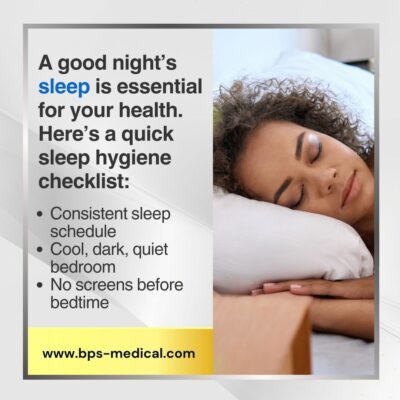
Welcome to our blog post on 8 Secrets to Sleep Better Tonight – Transform Your Nights: Practical Tips for Sleep Better. If you’ve been struggling with sleep problems and yearn for a restful night’s sleep, you’ve come to the right place. In this article, we will share eight tried-and-true secrets to help you improve your sleep quality and wake up feeling refreshed. Whether you find it difficult to fall asleep, stay asleep, or want to enhance your sleep routine, these practical tips are designed to transform your nights and promote a better sleep experience. So, let’s dive right in and uncover the secrets to enjoying a peaceful and rejuvenating night’s sleep.
Sleep Problems: Causes, Symptoms, and Solutions
Sleep problems can have a significant impact on our overall well-being. From insomnia to sleep apnea, these issues can lead to daytime fatigue, decreased productivity, and even serious health conditions. Identifying and addressing the underlying causes with proper treatment and lifestyle changes can help improve sleep quality and restore normal sleeping patterns. Don’t let sleep problems disrupt your life; take the necessary steps to ensure a restful and rejuvenating night’s sleep.
Seeking professional guidance can help improve sleep quality and restore overall well-being. Prompt action is necessary to tackle this troubling epidemic and ensure optimal health.
8 Secrets to Sleep Better Tonight
Transform Your Nights: Practical Tips To Sleep Better
1. Tame Your Stress Gremlins
Stress is like that annoying mosquito buzzing around your ear while trying to sleep. Shoo it away with relaxation techniques like yoga, meditation, or even just some good old-fashioned deep breathing. Picture yourself on a beach… Ah, tranquility!
- Why it works: Stress can increase cortisol levels, making sleeping harder. Relaxation techniques help lower these levels.
- Try it: Apps like Headspace or Calm can guide you through meditation.
2. Say No to Late-Night Netflix Binges
We get it; “just one more episode” is tempting, but screens emit blue light that messes with your sleep. Try a book instead. Remember those?
- Why it works: Screen blue light can suppress melatonin, the hormone that regulates sleep.
- Use blue light filters on devices or switch to reading a paperback.
3. Create a Sleep Sanctuary
Transform your bedroom into a sleep haven. Think of it like preparing a royal chamber: comfy mattress, blackout curtains, and banishing the clutter. A clean space equals a clear mind.
- Why it works: A comfortable and quiet environment promotes better sleep by minimizing disruptions.
- Try it: Invest in a good mattress and keep your bedroom cool and dark.
4. Embrace the Power of Routine
Your body loves a good routine. Go to bed and wake up at the same time every day. Yes, even on weekends! Your future well-rested self will thank you.
- Why it works: Consistent sleep schedules reinforce your body’s natural sleep-wake cycle.
- Try it: Set a bedtime alarm to remind you when to wind down.

5. Snack Smart
Late-night snacks can be a double-edged sword. Opt for light, sleep-friendly snacks like a banana or a handful of nuts. Pizza at 11 PM? Probably not your best bet.
- Why it works: Certain foods can promote or hinder sleep. Light snacks can help stabilize blood sugar levels.
- Try it: Avoid heavy, spicy, or sugary foods before bed.
6. Move It, Move It!
Regular exercise can do wonders for your sleep. Just make sure you wrap up your workout at least a few hours before bedtime, or you might end up too pumped to snooze.
- Why it works: Exercise can help you fall asleep faster and enjoy deeper sleep, but too close to bedtime can be stimulating.
- Try it: Aim for morning or early afternoon workouts.
7. Unplug and Unwind
An hour before bed, unplug from your devices and unwind with a relaxing activity. Try a warm bath, some soft music, or reading. Your brain will get the hint that it’s time to sleep.
- Why it works: Calming activities signal to your brain that it’s time to wind down.
- Try it: Create a pre-sleep routine that you enjoy.
8. Keep Cool
Your body temperature naturally drops when you sleep, so keep your bedroom cool. Think of it as your personal ice palace – without the actual ice, of course.
- Why it works: A cooler room temperature can help facilitate the body’s natural cooling process during sleep.
- Try it: Set your thermostat to around 65°F (18°C).
Remember, better sleep is no accident. It’s a combination of biology, psychology, and a touch of social savvy. Sweet dreams from your friends at BPS Medical!
Better Night Sleep: Practical Tips for Better Sleep
In conclusion, by implementing these 8 secrets to sleep better tonight, you can overcome common sleep problems and achieve a restful night’s sleep. Don’t let the struggles of sleep deprivation affect your overall well-being. Remember, small changes can make a big difference in improving your sleep quality. Prioritize your sleep and start reaping the benefits of a well-rested mind and body.
For more exclusive tips and tricks to enhance your sleep routine, be sure to subscribe to our newsletter. We’ll provide you with regular updates and valuable insights to help you on your journey to better sleep. Don’t miss out on the opportunity to transform your nights and live your days to the fullest. Subscribe now and sleep better tonight!
What is the best thing to help you sleep better?
Improving sleep quality often involves multiple strategies and better sleep habits. Here are some of the most effective ways to help you sleep better:
Maintain a Regular Sleep Schedule: Go to bed and wake up at the same time every day, even on weekends.
Create a Relaxing Bedtime Routine: Engage in calming activities before bed, such as reading, taking a warm bath, or practicing meditation.
Optimize Your Sleep Environment: Ensure your bedroom is cool, dark, and quiet. Consider using earplugs, an eye mask, or a white noise machine if needed.
Limit Exposure to Screens Before Bed: The blue light emitted by phones, tablets, and computers can interfere with your ability to fall asleep. Try to avoid screens at least an hour before bed.
Watch Your Diet and Caffeine Intake: Avoid heavy meals, caffeine, and alcohol close to bedtime. These can disrupt your sleep.
Stay Active: Regular physical activity can help you fall asleep faster and enjoy deeper sleep. However, try not to exercise too close to bedtime.
Manage Stress: Techniques such as deep breathing, meditation, and progressive muscle relaxation can help reduce stress and improve sleep.
Consider Natural Sleep Aids: Herbal supplements like valerian root or melatonin can be helpful for some people, but it’s important to consult with a healthcare provider before trying any new supplement.
Limit Naps: While short naps can be beneficial, long or irregular napping during the day can negatively affect nighttime sleep.
Seek Professional Help: If you have persistent sleep problems, it might be helpful to consult a healthcare provider or a sleep specialist to address any underlying issues such as sleep apnea or insomnia.
For more sleep tips and tricks, visit BPS Medical. 🌙💤
What is the 10 3 2 1 0 rule for sleep?
The 10-3-2-1-0 rule for sleep is a simple guideline designed to help improve sleep quality by establishing a consistent pre-sleep routine. Here’s a breakdown of the rule:
10 hours before bed: No more caffeine – Caffeine can stay in your system for many hours, so avoiding it 10 hours before bedtime helps ensure it won’t interfere with your ability to fall asleep.
3 hours before bed: No more food or alcohol – Eating or drinking alcohol close to bedtime can disrupt your sleep. Alcohol might make you drowsy initially, but it can lead to a restless night, while late meals can keep your digestive system active and delay sleep onset.
2 hours before bed: No more work – Stopping work-related activities at least two hours before bed allows your mind to unwind and relax. This period helps to reduce stress and mental stimulation.
1 hour before bed: No more screens – The blue light emitted by screens can interfere with melatonin production, making it harder to fall asleep. Turning off electronic devices an hour before bed and engaging in relaxing activities can help signal to your body that it’s time to sleep.
0: The number of times you hit the snooze button – Avoid hitting the snooze button in the morning. It’s better to set your alarm for the actual time you need to get up to avoid disrupting your sleep cycle with fragmented snooze sleep.
Following this rule helps create a sleep-conducive environment and promotes better sleep hygiene, leading to improved overall sleep quality and health (homesandgardens.com) (Vital Habits) (Health Hub).
Discover the Benefits of Better Night's Sleep
At BPS Medical, we understand the importance of providing our clients with the best possible conditions for a good night's sleep. Our specialists can help advise you on simple modifications to your sleep environment to promote better sleep quality, such as proper lighting, optimal room temperature, and comfortable bedding. Let us help you create a peaceful sleep sanctuary and improve your overall well-being.
Our team of experts stays up-to-date with the latest research on sleep to provide you with the most effective solutions. We can help you understand the science behind sleep and how to optimize your sleep environment for better rest and recovery.
If you are struggling with sleep disorders such as insomnia, sleep apnea, or restless leg syndrome, our team can help. We offer personalized treatment plans to address your specific needs and improve your sleep quality.
Ready to improve your sleep quality and overall well-being? Contact us today to schedule a consultation with one of our sleep specialists.








